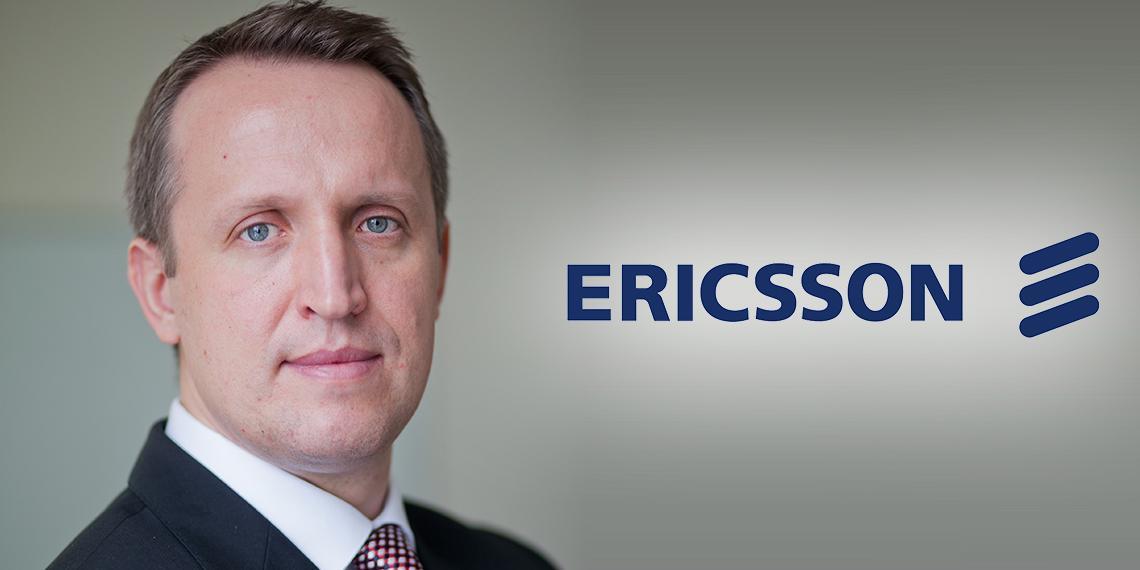As the world becomes ever more digitally connected, industries are experiencing an ICT-driven transformation. Because of this, traditional revenue streams are slowing for operators, says Ericsson's Wojciech Bajda, Head of Industry and Society Unit in Region Middle East, speaking to Telecom Review about Ericsson's latest '5G Business Potential' report.
5G will be a key technology for operators to generate new revenue streams in the future, suggests Ericsson's report titled 'The 5G business potential - Industry digitalization and the untapped opportunities for operators'. Operators will "benefit from an additional 34 percent revenue from 5G-enabled industry digitalization market opportunities" by 2026.
Ericsson's report focuses on eight key global industries that will benefit from 5G and industrial digitalization, which include manufacturing, public safety, financial services, healthcare, automotive, public transport, media and entertainment, as well as energy and utilities. The latter ranked highest in terms of 5G-driven revenues by 2026 while financial services ranked the lowest.
"We highlighted several industries in the report which will be affected the most by 5G," said Mr. Bajda at the launch of the report in Dubai. "Already see different applications which are being implemented, but not with 5G yet," he said. "There will be further enhancements going forward before the technology is ready to be deployed."
The business opportunity for ICT players leveraging 5G to digitize industries is estimated to reach over $US53 billion by 2026 in the Middle East and North Africa (MENA), according to Ericsson's report. There will also be huge opportunities for telecom operators who adapt to these trends, the report adds. Ericsson foresees a revenue potential of US$25 billion by 2026 in the Middle East and Africa for operators. This represents a possibility to add 23 percent growth in revenues.
"In the report we are highlighting that 5G will be a new business platform - more than just an upgraded radio mobile network," said Mr. Bajda, who has held senior positions at Ericsson in the UAE, Ukraine, Botswana and Tanzania. "5G will enable new business models and it will have a significant impact on different industries in society."
In Dubai, for example, Ericsson is working on a project with the Roads and Transport Authority (RTA) to connect all taxis and limousine services digitally in order for the RTA to monitor usage to understand exactly how many passengers are being escorted, where they are being escorted to, etc. This information could "contribute to making services better in the future," said Mr. Bajda.
The industries that will see the most revenue opportunities created or enhanced by 5G, according to Ericsson's report, are manufacturing and energy/utilities. To capture this market potential requires investment in 5G technology, but also business development, go-to-market models and organizational adaption. To leverage the power of 5G, operators need to "rethink their role".
"Our customers are very interested in 5G," said Mr. Bajda, discussing Ericsson's operator customers in the Middle East. However, there is no spectrum assigned yet for 5G because standardization of the technology is still in the works, he explained.
As one of the leading members of the standardization body 3GPP, which is working towards Release 15 (global standards for 5G) to be released next year, Ericsson sees "a lot of interest" from mobile operators in the region wanting to trial and pilot the technology. "We are having these discussions with mobile operators in the Middle East," said Mr. Bajda.
Operators are interested in finding out how they can make businesses thrive and be more efficient with 5G, he said. They also want to understand how 5G can support enterprise customers better, as well as how it can support private users better.
Using 5G to solve the key challenges in digitalization for industries, operators can become "more than network developers," says Ericsson's report, addressing additional revenue streams by becoming "service enablers" or even "service creators". It is time for operators to "establish a new identity," it adds.
"The strong interest in 5G isn't just because it's a new thing - everyone is looking at the various use cases and coming to Ericsson for help to come up with 5G business models," said Mr. Bajda. "This is what we do at Ericsson - we spend a lot of time on analysis and reports, not for our own satisfaction, but in order to sit with our operator customers and brainstorm how we can better address their customers."











